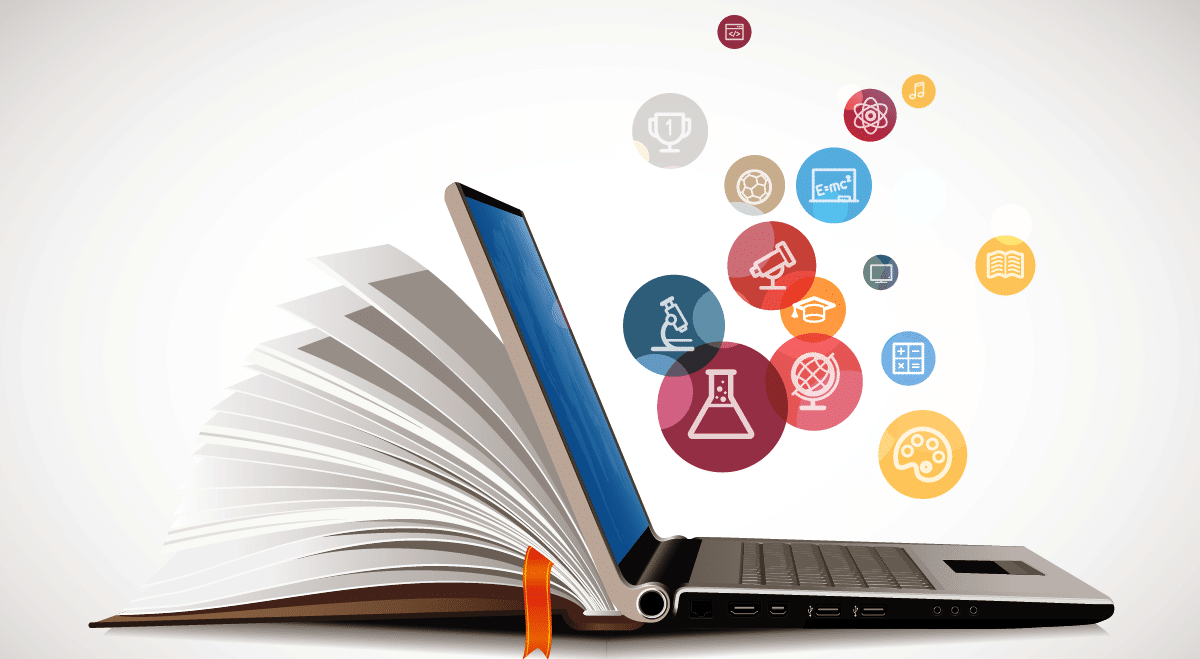Comprehensive Service Guides for Advancing Innovation Education in Schools and Colleges
The combination of technology education and learning right into institution and college educational program has actually come to be an important imperative in preparing trainees for a significantly digital labor force. What certain approaches can be adopted to optimize their impact on both educators and trainees?
Significance of Innovation Education And Learning
As technology remains to advance at an unprecedented rate, the value of innovation education has come to be progressively obvious in today's society. The integration of technology into numerous facets of life requires that individuals possess a fundamental understanding of technological principles and applications. This expertise not just improves employability but also cultivates vital reasoning and problem-solving abilities necessary for browsing a vibrant labor force.
In academic establishments, innovation education outfits students with the ability to adjust to quick changes in industries driven by technology. It urges creative thinking and encourages learners to engage with arising modern technologies, from expert system to information analytics. Moreover, technology education promotes electronic literacy, which is vital in an era where details is easily offered yet commonly misleading.

Secret Parts of Effective Guides
Effective overviews for modern technology education need to include several key parts to make sure that students gain one of the most from their experiences. First, a distinct educational program is vital, describing the objectives, finding out end results, and the skills to be established. This curriculum must be frequently updated to reflect the rapidly progressing technological landscape, guaranteeing significance and applicability.
2nd, comprehensive sources that consist of textbooks, on the internet materials, and hands-on tools are vital. These sources must be varied and available, satisfying numerous discovering styles and preferences. In addition, integrating real-world scenarios and study can boost understanding and engagement.
Third, assessment techniques should be consisted of to assess learner progress successfully. These assessments need to be differed, incorporating developmental and summative assessments that line up with the discovering objectives.
Furthermore, specialist advancement possibilities for teachers are critical. Training workshops and programs can equip instructors with the most recent instructional methods and technical developments.
Lastly, promoting a joint discovering setting encourages peer communication and expertise sharing. By consisting of these essential components, guides for technology education can dramatically boost the knowing experience, preparing students for future challenges in a progressively digital globe.
Structure Market Partnerships
Structure solid industry collaborations is a vital aspect of improving technology education and learning. These collaborations between schools and companies develop a dynamic environment that benefits trainees, educators, and companies alike. By cultivating relationships with industry leaders, institutions and universities can straighten their educational programs with the developing demands of the work market, making sure that students get appropriate skills and expertise.
The development of teaching fellowships, apprenticeships, and mentorship programs works as a foundation of these collaborations. Such opportunities supply students with hands-on experience, enhancing their employability and useful understanding of innovation applications. Additionally, industry partners can offer understandings right into emerging trends and technological advancements, enabling instructors to adapt their mentor approaches accordingly.
Moreover, collaborations can promote accessibility to sources, such as devices, software application, and financing for research study projects. These payments enhance the discovering atmosphere and allow institutions to remain at the leading edge of technical advancement. Inevitably, developing durable sector collaborations is vital for growing a proficient workforce navigate to these guys that satisfies the needs these days's rapidly transforming technical landscape, while also driving economic growth and competitiveness in the wider community.
Implementing Technology Programs
Carrying out modern technology programs within universities requires a calculated strategy that prioritizes both curriculum development and source allotment. To launch effective innovation integration, institutions must first evaluate their existing facilities and determine voids in resources, including equipment, software, and employees training. This analysis enables universities and schools to produce a tailored plan that straightens with their particular academic objectives.
Following, it is important to develop a comprehensive curriculum that includes arising innovations and market standards. Teaming up with teachers, market specialists, and stakeholders can make certain that the curriculum stays relevant and effective in preparing students for the workforce (Insurance). Additionally, specialist advancement for faculty is important, as it gears up teachers with the skills needed to efficiently instruct new modern technologies
Moreover, organizations need to emphasize the significance of hands-on knowing experiences, such as laboratories and workshops, that permit trainees to apply academic knowledge in practical settings. This experiential technique enhances engagement and fosters important reasoning. Lastly, safeguarding lasting funding with collaborations and grants can assist keep and expand innovation programs, making sure long-lasting success and flexibility in an ever-evolving technological landscape.
Measuring Success and Results
Examining the success and end results of technology education and learning programs is essential for informative post validating their effect and guiding future improvements. Effective measurement structures need to incorporate both qualitative and measurable metrics, providing a detailed view of program efficacy. Secret efficiency signs (KPIs) such as pupil enrollment numbers, retention rates, and course completion percentages supply important measurable data.

Incorporating standard analyses can further evaluate trainees' technical proficiencies and readiness for the labor force. Benchmarking versus comparable establishments enables contextually appropriate comparisons, highlighting areas for growth.
Eventually, the constant examination of technology education and learning programs cultivates a society of renovation, ensuring that they advance in placement with market demands and educational criteria. By systematically determining success, organizations can not just show liability to stakeholders yet additionally improve their offerings, therefore improving the learning experience and preparing trainees for the ever-changing technical landscape.
Final Thought

The integration of modern technology education into institution and college curricula has actually come to be a vital vital in preparing pupils for an increasingly electronic labor force.As modern technology proceeds to develop at an extraordinary rate, the value of technology education has actually ended up being progressively obvious in today's society.In instructional my site institutions, technology education gears up pupils with the ability to adapt to rapid modifications in industries driven by innovation. By focusing on innovation education and learning, establishments can cultivate a generation of educated residents qualified of leveraging modern technology for personal and societal innovation. The application of durable assessment methods enables institutions to determine success and results, ultimately improving the total effectiveness of innovation education initiatives and preparing trainees for future challenges.